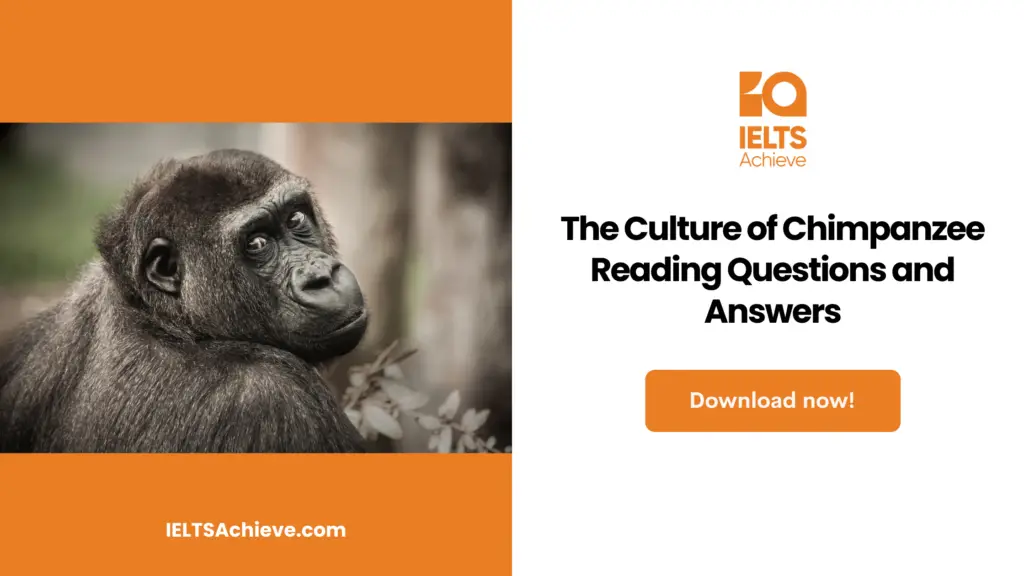The Blog post contains the following IELTS Reading Questions:
- IELTS Reading Matching Features
- IELTS Reading Sentence Completion
- IELTS Reading Multiple Choice Questions
Unlock your full potential in the IELTS Reading section – Visit our IELTS Reading Practice Question Answer page now!
Recommended Questions:
Renewable Energy IELTS Reading Question with Answer
Amateur Naturalists – IELTS reading passage

Amateur Naturalists
Tim Sparks takes a little notepad with a leather cover and slips it out of an envelope. Notes on beekeeping were written in this book by the late Walter Coates of Kilworth, Leicestershire, between the years 1941 and 1969, and the pages are beginning to yellow. He adds it to the mountain of gardening diaries, birdwatchers’ lists, and local journals that are already on his desk. According to him, “We’re unearthing approximately one huge new record happening each month,” and “I still get astonished.” Approximately two centuries advance to Coates, a landowner named Robert Marsham from Norfolk in the east of England got the ball rolling by noting the life cycles of the plants and animals that lived on his estates, such as the date that the first wood anemones flowered, the date that the oak trees first sprouted leaves, and the date that the rooks started nesting. Over the course of 211 years, subsequent Marshams have continued to compile these notes.
These kinds of records are being put to use today in ways that the people who originally created them could not possibly have anticipated. Ecologists who are interested in the timing of biological processes, sometimes known as phenology, are finding that these data sets, along with others like them, are proving to be invaluable. Researchers are able to explain how, for example, variations in temperature affect the onset of spring by merging the records with climatic data. This enables ecologists to make greater predictions about the impact of climate change. A comparatively small group of researchers went through the records that had been kept for hundreds of years by thousands of amateur naturalists. In addition, more organized projects have just begun, which has resulted in an excessive amount of feedback. Sparks, a climate researcher at the Centre for Ecology and Hydrology in Monks Wood, has stated that “the degree of attention is almost alarming.”
When Sparks’s coworker retired, the Marsham data were given to him, and this is when he first became aware of the army of “closet phenologists,” as he refers to them. Now a significant portion of his work is devoted to the process of pursuing leads from one past data frame to another. As word of his quest spreads, people start pointing him in the direction of other historical records, and an increasing number of people who consider themselves to be amateur phenologists come forward. His work is made easier by the British predilection for recording and collecting information. For example, a man from Kent handed him kitchen calendars that spanned 30 years and on which he had written the date when the magnolia tree in his neighbor’s yard blossomed.
Other scholars have uncovered data from just as peculiar a source of information. Rafe Sagarin, an ecologist at Stanford University in California, conducted research on the records of a betting contest not too long ago. In the contest, participants attempted to guess the exact time at which a notably erected wooden tripod would fall through the surface of a thawing river. Sagarin’s research was published in the journal Ecology. Since 1917, the competition has been held yearly on the Tanana River in Alaska. An examination of the results revealed that the thaw now begins five days sooner than it did when the competition first began.
Overall, such records have shown that natural phenomena now occur earlier across much of the northern hemisphere, from the opening of leaves to the return of migratory birds and the emergence of hibernating insects. Data can also predict future nature changes. Amateur records could aid conservation alongside climate change predictions. Terry Root, an ecologist at the University of Michigan in Ann Arbor, compared wildfowl counts from 1955 to 1996 with climate data and future warming predictions. Her analysis suggests that predicted 10. droughts might reduce pond breeding numbers. “Global warming will likely reduce North American waterfowl,” she says.
However, not all professionals are willing to use amateur data. 11. “A lot of scientists won’t touch them because they’re too riddled with difficulties,” Root says. Because various people have different opinions about what constitutes, say, an open snowdrop. “The most concerning aspect of ad hoc observations is how precisely and methodically they were collected,” says Mark Schwartz of the University of Wisconsin, Milwaukee, who researches plant-climate interactions. “We need to know exactly what a person has been seeing; if they just say, ‘I noticed when the leaves came out,’ it might not be very valuable.” Measuring the arrival of fall can be especially difficult because 12. determining when leaves change color is a more subjective process than noting when they appear.
The contribution that amateurs can provide is often seen favorably by phenologists. According to Sagarin, they “get at the raw strength of science: meticulous observation of the natural world.” Professionals understand the value of meticulous quality control, though. Root, for instance, conducts a collector interview to assess the caliber of an amateur archive. “You must always be on guard since even insignificant events like vacations might skew the results. Many documents are disregarded by me because they are not rigorous enough, “she claims. Others contend that some of the issues with amateur data can be resolved with the appropriate statistics.
Arnold van Vliet, an environmental scientist at Wageningen University in the Netherlands, is 13. developing statistical methods to take into account the uncertainty in amateur phenological data. Professional researchers are currently working to develop standardized recording protocols in order to better capture the passion of amateur phenologists, as evidenced by former records. They anticipate that well-planned research will produce a volume of findings that is sufficient to mask the peculiarities of different recorders. The information is easy to get and can show a range of species over time and space. Without hiring an army of watchers, says Root, “it’s really difficult to collect information on a wide geographic scale.”
Phenology is another tool that can be used to hammer home the points being made about climate change. Sparks claims that 14. the general public recognizes the importance of these documents since they are able to comprehend the content. It can also demonstrate potentially unpleasant repercussions, such as the discovery that more rat infestations are reported to local councils in warmer years, as he adds, which is an example of how this phenomenon might be illustrated. In addition, encouraging participation from others is beneficial to the organization’s public relations. “It empowers them to think that the data they’ve been gathering as a hobby may be utilized for something scientific,” says Root. “People are excited to think that the data they’ve been collecting as a hobby might be used for something.”
Stay informed and prepared for success – Explore our comprehensive Reading Test Info page to get valuable insights, exam format details, and expert tips for mastering the IELTS Reading section.
Questions
Questions 1-3
Complete the sentences below with NO MORE THAN TWO WORDS from the passage for each answer. Write your answers in boxes 1-3 on your answer sheet.
1. Walter Coates’s records largely contain the information of ______.
2. Robert Marsham is famous for recording the ______ plants on his land of animals.
3. According to some phenologists, global warming may cause the number of waterfowl in North America to drop significantly due to increased ______.
Enhance your sentence completion skills in the IELTS Reading section. Click here to access our comprehensive guide and learn effective strategies for filling in missing words or phrases in sentences.
Questions 4-7
Choose the correct letter A, B, C or D. Write your answers in boxes 4-7 on your answer sheet.
4. Why do a lot of scientists discredit the data collected by amateurs?
A. Amateur data is not reliable.
B. Amateur observers are not careful in recording their data.
C. Scientific methods were not used in data collection.
D. Amateur data is produced by the wrong candidates.
5. Mark Schwartz used the example of leaves to illustrate that
A. amateur records can’t be used.
B. amateur records are always unsystematic.
C. valuable information is often precise.
D. the color change of leaves is hard to observe.
6. How do the scientists suggest amateur data should be used?
A. Using improved methods
B. Applying statistical techniques in data collection
C. Using raw materials
D. Being more careful in the observation
7. What’s the implication of phenology for ordinary people?
A. It empowers the public.
B. It promotes public relations.
C. It warns people of animal infestation
D. It raises awareness about climate change in the public.
Ready to improve your performance in Multiple Choice Questions (MCQs)? Click here to access our comprehensive guide on how to tackle MCQs effectively in the IELTS Reading section.
Questions 8-14
The reading passage has nine paragraphs A-I.
Which paragraph contains the following information?
Write the correct letter A-I in boxes 8-14 on your answer sheet.
Improve your performance in Matching Features questions by clicking here to access our comprehensive guide. Learn how to match specific features or characteristics with the options provided in the IELTS Reading section.
8. The definition of phenology
9. How Sparks first became aware of amateur records
10. How people reacted to their involvement in data collection
11. The necessity to encourage amateur data collection
12. A description of using amateur records to make predictions
13. Records of a competition providing clues to climate change
14. A description of a very old record compiled by generations of amateur naturalists
Unlock your full potential in the IELTS Reading section – Visit our IELTS Reading Practice Question Answer page now!
Recommended Questions:
Renewable Energy IELTS Reading Question with Answer
Amateur Naturalists Reading Answers
1. Bee-keeping
2. Life cycles
3. Droughts
4. A
5. C
6. B
7. D
8. B
9. C
10. H
11. G
12. E
13. D
14. A

We hope you found this post useful in helping you to study for the IELTS Test. If you have any questions please let us know in the comments below or on the Facebook page.
The best way to keep up to date with posts like this is to like us on Facebook, then follow us on Instagram and Pinterest. If you need help preparing for the IELTS Test, join the IELTS Achieve Academy and see how we can assist you to achieve your desired band score. We offer an essay correction service, mock exams and online courses.

